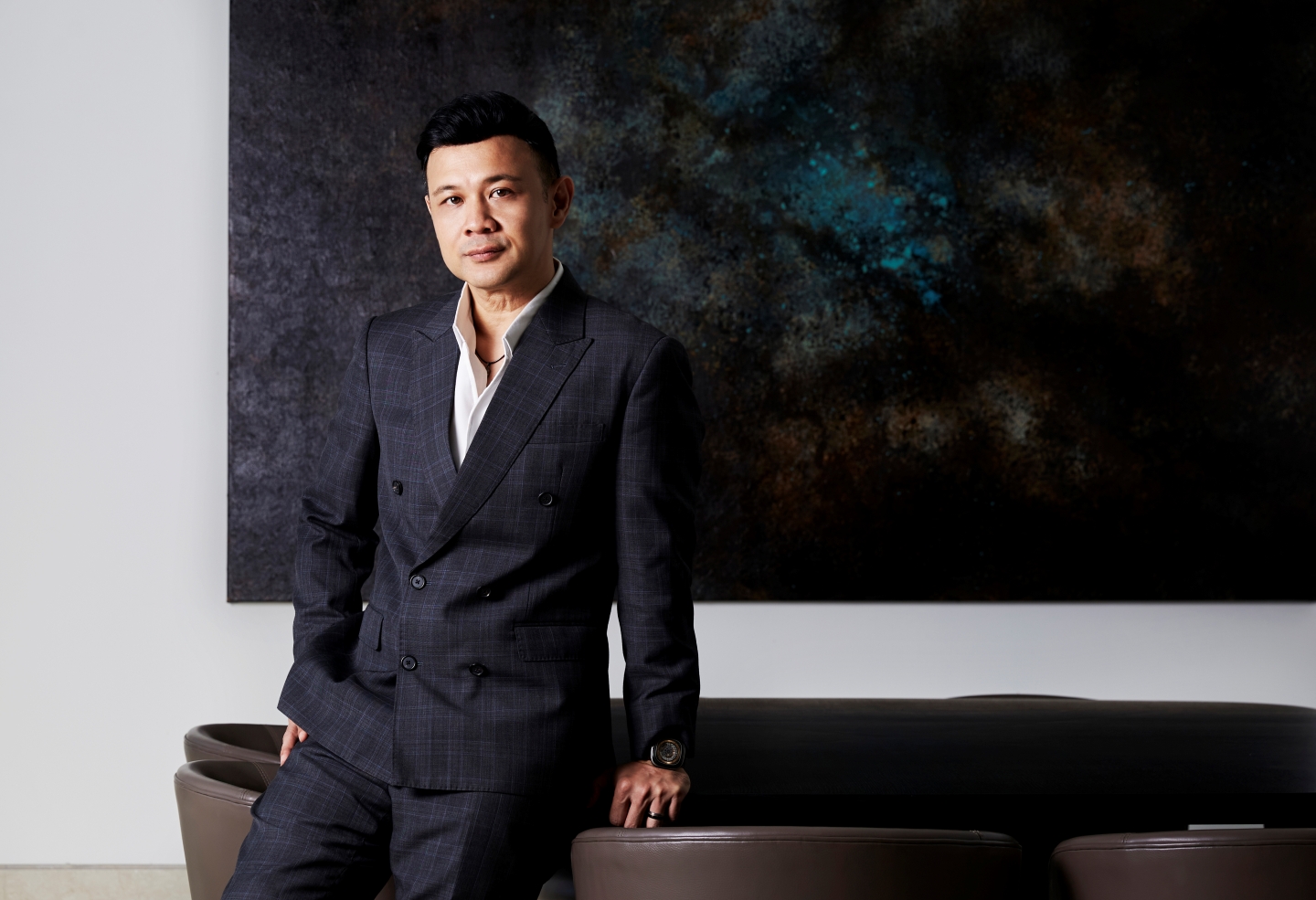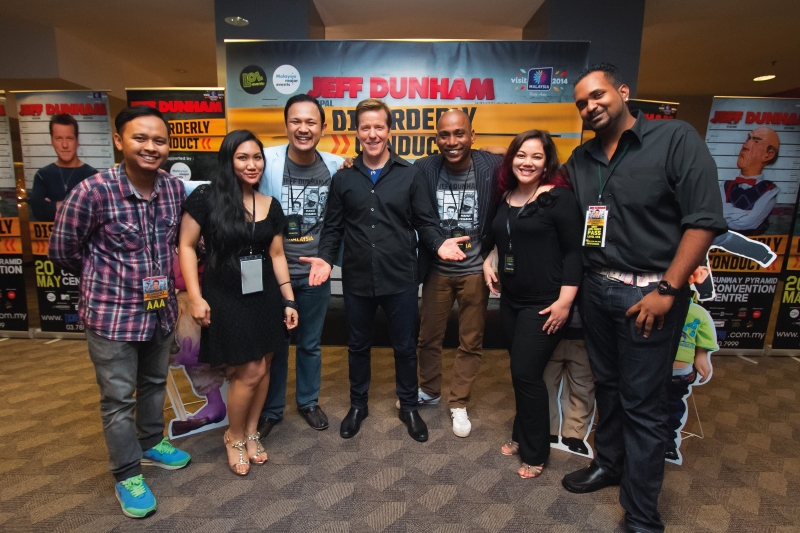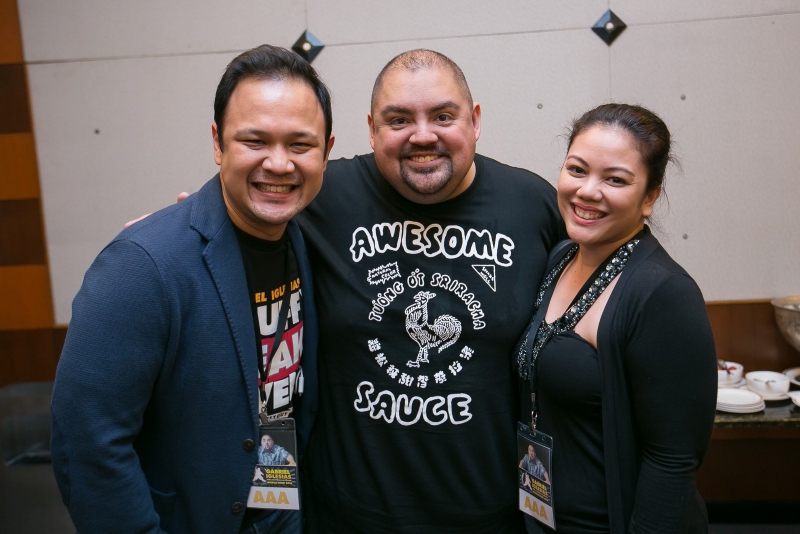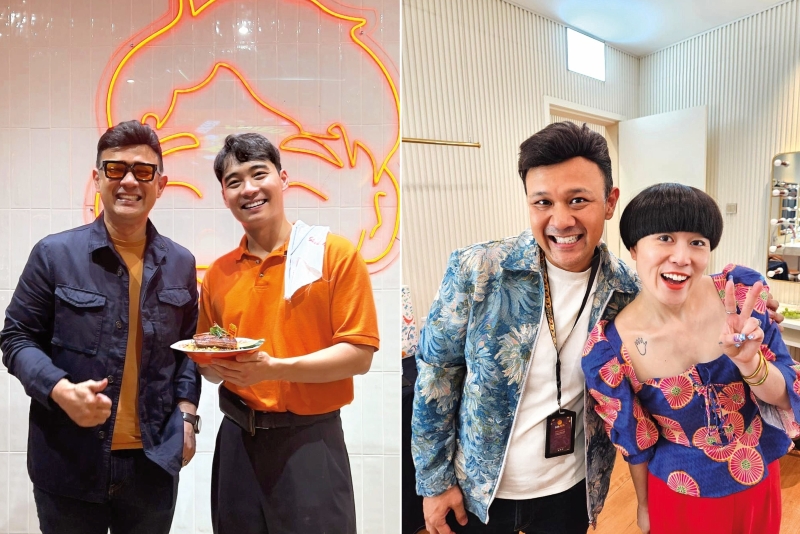
Rizal is encouraging us to reconsider our perspectives when it comes to the implementation of artificial intelligence in workspaces (Photo: SooPhye)
In recent times, several of the particularly literary and Luddite-inclined among us have taken to the interweb to discuss a certain bone-chilling read — Harlan Ellison’s 1967 short story I Have No Mouth, and I Must Scream — that depicts a fictional post-apocalyptic world in which everyone has been exterminated by a sinister supercomputer named AM, save for five individuals who are tormented for over a century via endless virtual scenarios based on each of their worst fears.
Razor-sharp and deeply compelling, the tale explores themes of man versus machine, sentience, community and suffering. Many consider it a warning for what may come if mankind fails to control its greed and hatred, and if technology falls into the wrong hands.
Sensational to some and repulsive to others, modern tech has, without a doubt, completely altered our way of life over the past century — and rapidly at that. From healthcare to education, digitalisation has evolved even the most mundane of tasks, especially in developed metropolitan areas throughout the Global North.
Lately, however, a key topic has pitted people, regardless of their personal tech savviness, against each other — artificial intelligence. The biggest concern is this: As more corporations adopt the tech,
it will gradually force people out of their jobs and subsequently devalue their skills. Founder of beloved Japanese animation studio Studio Ghibli Hayao Miyazaki, who is famously staunch on preserving art in its most organic and original forms, once described AI as “an insult to life itself”. (At the time of writing, this quote had once again gone viral on social media as professionals from all niches of the creative industry strengthen their stand against AI-generated work following OpenAI’s latest image generator that can reimagine photos from your own gallery into Ghibli-style portraits).
One thing those deep in the anti-AI protest sometimes forget is that modern tech is engineered to make life more seamless. At their core, the gadgets and apps we use are built to connect users and enrich their lives. In the creative world, technology has made things like CGI animation and immersive art exhibitions a possibility, upgrading the content and media we consume both online and off.
Ultimately, it comes down to those who wield this double-edged sword to decide if tech creates disaster or wonders. Leading the local charge on AI-focused experiences, CEO of live events and performances company LOL Asia and chairman of Alife Malaysia Rizal Kamal is one who hopes to see it bear the latter fruit.
hr-762.jpg

Modern maverick
It is popularly said that laughter is the best medicine, and though he admits to not being much of a funny man himself, Rizal agrees. “I’m actually the least funny person I know! I have a terrible ‘dad’s sense of humour’,” he chuckles. “But I love to see others happy and laughing. I adore the free spirit of comedy where you’re able to express yourself and push boundaries. It is human nature to be intrigued by things that push us beyond our comfort zones, and the role of comedians is to make that funny and enjoyable.”
His early working life began in the tech industry, at “a small public-listed company, and we were selling websites and VoIP (Voice over Internet Protocol) solutions”. Working in tech sales around 2000 when many were still in awe of and intimidated by these new-fangled tools, Rizal quickly noticed how swiftly the world was progressing, as well as society’s reluctance to embrace change. However, he insists remaining stagnant in our comfort zones will only make things tougher down the road, and that it pays to take a leap of faith. “Technology will always develop and be there to enhance our lives. We should not be fearful of it and must learn to adapt.”
His first venture after leaving tech was a paintball company, which enabled him to tap his inner businessman and pioneering spirit. “I’ve always wanted to be an entrepreneur as a kid — I was constantly thinking out of the box, trying something new. When we opened [the paintball arena], it was only the second of its kind in the country. Later, when I jumped into comedy, no one else was really doing it on that scale either.
“I guess it’s just in my nature and entrepreneurial spirit to want to take on new things. It’s never an easy journey because when you introduce something unknown, you first get a wave of excitement followed by one of resistance,” he explains, adding that trying new things does not faze him anymore.
In 2009, Rizal’s passion for comedy finally culminated in the establishment of LOL Asia, which came about by chance: He found the boisterous nature of a good comedy show never failed to liven up even the bluest of crowds, and his outgoing and adventurous personality led him to work with several of the industry’s biggest stars such as Kevin Hart, Gabriel “Fluffy” Iglesias, Jeff Dunham and Atsuko Okatsuka.
Post-pandemic, the company expanded into music and has produced events with local household names like Ella and Yuna. Rizal describes the move as “let’s just go for it. Pre-pandemic, everyone stayed in their own lane and did shows only in the languages and genres they were known for. But now, everyone is expanding and doing everything. Everyone’s changing and the industry is moving fast”.
His strengths as a team leader come from his time in tech, which nurtured a systematic way of thinking and doing things, allowing him to balance structure and imagination. “I’m a very organised thinker in a creative industry, and I think I have a nearly equal amount of left and right brain!”
Now, the businessman is gearing up to enter yet another less-explored niche — the application of AI in live entertainment to create immersive experiences and boost artist-audience connection. “I’ve experimented with so many forms of technology, from crypto to NFTs (non-fungible tokens). Now I’m looking into AI, which I think is probably one of the most extraordinary inventions man has ever made.”
lr-713.jpg

Deus ex machina
Never one to back away from hot takes or even the controversial, Rizal begs to differ on the potential drawbacks of AI development and application, particularly when it comes to live performances. To him, the recent tech growth, which seems sudden to many outside the space, has been a long time coming. “I think people always fear the unknown. AI is actually really scary. As someone who follows its developments closely, I discover something all the time, and there’s always something fresh to learn, another breakthrough. Over the past couple of years, it has really boomed. Those who don’t keep up with the news will naturally be intimidated because, to them, it came out of nowhere and they don’t understand it.”
His previous experiences aside, Rizal’s opinions come from his position as an industry head who experienced first-hand how Malaysia’s performing arts scene tanked during the peak of the pandemic.
“A lot of people have unease towards AI. But entrepreneurs and the ones responsible for leading others in their industries need to clear the path and bring excitement and solutions to their community,” he says.
During the Covid-19 years, when physical shows were prohibited for months at a time, some (Rizal included) made the decision to digitalise their operations to keep afloat. In fact, the CEO attributes his company’s current stability and success to those last-resort decisions. “The pandemic was really tough. We went digital and adopted technology to do shows online. We started our own on-demand video platform and got jobs for TV. Going online kept us alive.”
Now, following a widespread desire to spend more time outdoors and make memories with loved ones, fans of comedy and music are hungrier than ever for live events and social interaction. Rizal has certainly picked up on this uptick, saying “People want to live fully, and one of the ways they do that is to go to more concerts and shows. That is where many feel the most alive. You are exhilarated and connected to the artists who entertain you, whose work accompanied you in the times you felt down during the lockdowns. Meeting your favourite artist is an irreplaceable experience and people are more willing to spend on that now.”
Like many other movers and shakers in the creative world and beyond, Rizal is taking this opportunity to really hone in on tech implementation through LOL Asia and the events they cater for. With these instruments mastered, he believes artists, producers, designers and many more will not only be able to pull themselves out of the lingering Covid-19 slump, but even discover unprecedented and streamlined productivity. The rest of the world is changing rapidly, and if live entertainment wants to thrive and survive, it must evolve too, he adds.
“The three sectors that are going to change the most are healthcare, finance and the arts. AI is going to completely turn things around. In terms of the arts, it’s not a matter of being replaced by these tools, but being able to use them to expand the limits of the human imagination. AI can’t work on its own, only with human input. Whatever a person dreams of, AI can picture it and help you make something completely new and different. It unlocks a power for the person who knows how to utilise it and opens up a new world of exciting possibilities.”
rizal_kamal1.jpg

Forward thinking
When was the last time you scrolled through Instagram or TikTok, or even passed by a billboard ad, and noticed there was something uncanny about the media in front of you? Although impressive and sometimes good fun for personal use, generative AI still has lots of complications that deter it from being a feasible option for many at the professional level.
Ask Rizal, and he will say it is only a matter of time before we see massive strides in the efficacy of these software. “I see improvements almost every week,” he says. “Developers are coming up with all kinds of methods to fix things that were problems just a month ago. It’s happening rapidly. I think in the next one to two years, we might even start to see full-fledged movies made with AI that are visually just as good as their man-made counterparts.”
For many of us, imagining a world wherein we cannot tell the difference between what is real and what is crafted by AI is terrifying to say the least. However, Rizal assures that organisations like LOL Asia are more concerned with providing fuller and more engaging experiences to audiences, and is looking for ways to allow technology to help make that happen. People — both audiences and performers — remain at the heart of all he does. “We are experimenting with methods to offer immersiveness in the live entertainment space. It can come from visuals, audios and audience engagement, and we are looking to elevate every single touchpoint we can. We are using AI to help us enhance those elements and create a whole new experience for people who come to our shows.
“The most important thing, however, is to bring in a once-in-a-lifetime experience. It doesn’t matter so much who the act is, so long as the event is amazing and resonates with the audience. We always strive to create an unforgettable connection between the artist and fans, and I think that’s what we consider most when we think about what makes a great show.”
From electronic dance music festivals with jaw-dropping visuals to exhibitions that incorporate unique auditory and even olfactory aspects, immersive events from overseas take social media by storm every other week, leaving many Malaysians with a sense of FOMO (fear of missing out). According to Rizal, though, this need not be the case as our nation is well positioned to lead the incoming AI surge.
While the country has the existing resources to manufacture chips and set up data centres, many of these products and services are currently exported and sold to multinational companies. Part of Rizal’s work focuses on pouring that development back into Malaysia to shape how locals adapt and incorporate it into their lives.
“What we should be working on more is application. The tech is there, but how do we apply it to help people in their daily routines? We need more people to explore this. Even with large language models like ChatGPT, people still don’t know how to fully use it to improve their everyday tasks. When it comes to uplifting industries like agriculture, entertainment, education and more, there are so many methods for us to implement AI to make our lives easier, and this is something we have not studied yet. Not enough people are jumping into it, be it out of fear or lack of knowledge or they’re simply stuck in their way of doing things.”
Rizal’s motto is to “lead by doing”, so he and his team are currently working on a line-up of AI projects they will reveal to the public in the coming months. He hopes they will “break boundaries and lead the way on how technology can be used”. He plans to be a prime example of how technology and mankind can harmoniously coexist, so others can reassess their stances and fully embrace this new digital age. “I will always share, meaning that once we do something and are successful, we want to share it with others. I think that’s one of the key things any industry leader should do.”
At the end of the day, whether you are for AI or against it, figures like Rizal, with their stories and the work they do are not here to convince you to completely abandon your ways and leave behind the human aspects of art, work and life. Stealing the work of creatives and mass-firing human employees to replace them with bots without the appropriate programmes in place to ensure these people are sufficiently supported while they seek new livelihoods or build different skillsets is obviously wrong, and companies that partake such actions should be held accountable. But, just like the introduction of the modern smartphone a couple of decades ago, the current tech wave presents us with the chance to choose which inventions and applications we have the will and bandwidth to adopt for ourselves, and build the future we want to see.
For more information on upcoming LOL Asia events, see here.
This article first appeared on Apr 14, 2025 in The Edge Malaysia.


